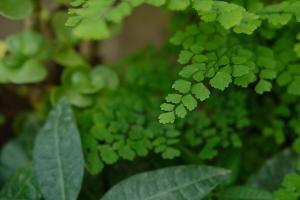When to Plant Fruit Trees in Zone 5b
Zone 5b covers a large area of the United States, including parts of the Midwest and Northeast. If you live in this area and are considering planting fruit trees, there are a few things to keep in mind when it comes to timing.
Spring Planting
Spring is a popular time to plant fruit trees, as the weather is starting to warm up and soil conditions are improving. In Zone 5b, spring planting typically takes place in late March or early April, once the threat of frost has passed. This allows the trees to get established before the hot summer months arrive.
When choosing a specific date for planting, it's important to keep an eye on the weather forecast. Heavy rain or extreme heat can stress out newly planted trees, so it's best to wait for a stretch of mild weather before getting started.
Fall Planting
Another option for planting fruit trees in Zone 5b is fall planting. This typically takes place in October, after the leaves have fallen off the trees and the temperatures have started to cool down. The cooler temperatures make it easier to transplant the trees without causing excessive stress.
One advantage of fall planting is that it allows the trees to establish their root systems over the winter months, so they are ready to grow quickly in the spring. However, it's important to make sure the ground isn't frozen when planting, as this can damage the roots.
Choosing the Right Trees
Regardless of when you plant your fruit trees, it's important to choose varieties that are well-suited to your climate and soil conditions. Some popular options for Zone 5b include apples, pears, cherries, and plums.
When selecting your trees, consider factors like the amount of sunlight and moisture in your yard, as well as the type of soil you have. If you're not sure which varieties to choose, consult with a local plant nursery or extension office for advice.
Caring for Your Trees
Once your fruit trees are planted, it's important to provide proper care to ensure they grow strong and healthy. This includes regular watering, mulching, and pruning as needed. It's also a good idea to fertilize the trees periodically to provide them with the nutrients they need to thrive.
In addition, be sure to keep an eye out for common issues like pests and disease. Regular inspections and treatments can help prevent these problems from causing serious damage to your trees.
Conclusion
If you live in Zone 5b and are thinking about planting fruit trees, the timing of your planting can have a big impact on the success of your trees. Consider planting in the spring or fall, choosing varieties that are well-suited to your climate and soil conditions, and providing proper care to keep your trees healthy over the long term.

 how many times do yo...
how many times do yo... how many planted tre...
how many planted tre... how many pine trees ...
how many pine trees ... how many pecan trees...
how many pecan trees... how many plants comp...
how many plants comp... how many plants can ...
how many plants can ... how many plants and ...
how many plants and ... how many pepper plan...
how many pepper plan...































